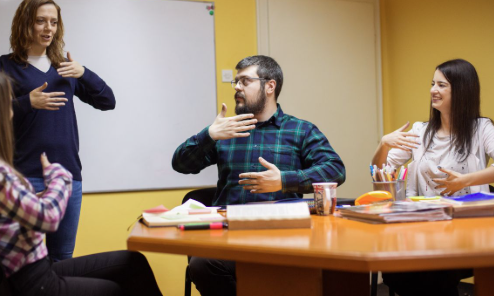One of the most effective ways to accelerate language learning is through immersion. Immersion surrounds you with the target language in natural, meaningful ways, helping you absorb vocabulary, patterns, and pronunciation without needing to memorize long lists. Here are friendly and accessible immersion techniques to help you progress faster.
1. Change Your Device Settings
Switch your phone, tablet, or computer to the language you’re learning. This everyday exposure builds familiarity with common terms and reinforces vocabulary in context.
2. Label Your Environment
Place sticky notes on objects around your home with their names in the target language. Seeing and saying these words daily helps build strong associations and recall.
3. Watch and Listen in the Target Language
Choose shows, movies, or YouTube videos in the language you’re learning. Use subtitles if needed, and gradually switch to full immersion. Music and podcasts are also great tools for tuning your ear to the language’s rhythm and sounds.
4. Read Aloud and Think in the Language
Reading aloud boosts pronunciation and fluency. Start with simple texts, children’s books, or familiar stories. Challenge yourself to think in the target language during daily tasks, such as naming items or planning your day.
5. Speak Every Day
Even if you’re learning alone, talk to yourself in the language. Describe what you’re doing, rehearse conversations, or repeat phrases you hear. Speaking regularly builds confidence and fluency.
6. Use Language Learning Apps with Real-Life Simulations
Many apps now include dialogues, voice recognition, and real-life scenarios. Practicing language in simulated settings helps prepare you for actual conversations.
7. Join Language Communities
Connect with native speakers through online exchanges, language meetups, or social media groups. Real-time interaction boosts your listening and speaking skills and builds cultural awareness.
Conclusion
Immersing yourself in a new language doesn’t require traveling abroad. With creativity and consistency, you can turn your surroundings into a language-rich environment. These daily habits bring the language to life and help you build skills naturally and enjoyably.













